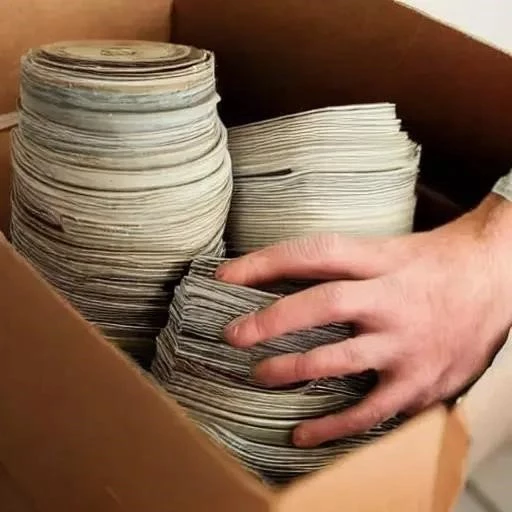
In an era of unprecedented digital connectivity, one might assume that tracing the history of an object as fundamental as an automobile would be a seamless endeavor. Yet, the quest to locate an old car registration often transforms into an unexpected journey, a fascinating blend of historical detective work and modern bureaucratic navigation. Whether you’re a classic car enthusiast meticulously restoring a vintage beauty, a homeowner needing to prove ownership for a long-forgotten vehicle, or simply curious about a cherished family heirloom, the need to unearth these crucial documents is more common than you might imagine. This seemingly simple task can unlock a wealth of information, from a vehicle’s original specifications to its lineage of previous owners, providing invaluable context and sometimes, profoundly sentimental connections.
The registration document itself serves as a vital artery in the lifeblood of any vehicle, a legally binding testament to its identity and ownership; Without it, transactions become complicated, insurance claims can stall, and even the simple act of re-registering an antique car can become a bureaucratic labyrinth. Fortunately, the path to retrieving these historical records, while sometimes winding, is far from insurmountable. By integrating insights from various governmental agencies, private databases, and even personal archives, individuals are increasingly empowered to reconnect with their automotive past, transforming what initially appears to be a daunting challenge into a remarkably achievable triumph. Our journey today will illuminate the most effective strategies, guiding you through the process with clarity and confidence.
Essential Resources for Retrieving Your Old Car Registration
| Method/Resource | Description | Key Information Needed | Potential Outcome/Benefit | Reference/Link Example |
|---|---|---|---|---|
| State DMV/Local Licensing Authority | The primary governmental body responsible for vehicle registration records. Often stores extensive historical data. | Vehicle Identification Number (VIN), previous owner’s name, approximate dates of ownership, last known license plate number. | Official copies of past registrations, title history, verification of ownership. | USA.gov ─ Motor Vehicle Services |
| Previous Insurance Provider | Insurance companies maintain records linked to vehicle policies, which often include registration details. | Policy number, name of policyholder, approximate dates of coverage. | Proof of prior coverage, vehicle details as registered during the insured period. | (Contact your specific previous insurer directly) |
| Original Dealership/Seller | If purchased new or from a reputable used car dealer, they might retain sales and registration paperwork. | Date of purchase, buyer’s name, vehicle make/model. | Copies of original sales contracts, temporary registrations, or title applications. | (Search for the dealership’s current contact info) |
| Vehicle History Reports (e.g., CarFax, AutoCheck) | These services compile extensive data from various sources, including some registration events and title transfers. | Vehicle Identification Number (VIN). | Comprehensive vehicle history, including ownership changes, title issues, and sometimes registration states. | CarFax Official Site |
| Personal Records/Archives | Often overlooked, old files, glove compartments, or even digital backups can harbor forgotten documents. | No specific info needed, just diligent searching of your own records. | Direct discovery of the original physical registration document. | (Check old filing cabinets, digital storage, safety deposit boxes) |
Navigating the Labyrinth: Strategies for Success
The journey to retrieve your old car registration often begins with the most direct route: your local Department of Motor Vehicles (DMV) or its equivalent. These institutions are the custodians of vehicle histories, meticulously archiving records for decades. When approaching them, arm yourself with as much information as possible. The Vehicle Identification Number (VIN) is your golden key, unlocking a vehicle’s unique identity. However, even without a VIN, details like the previous owner’s full name, the approximate years of ownership, and even the old license plate number can prove incredibly effective in narrowing down the search. Many DMVs now offer online portals or mail-in request forms, streamlining a process that once required a physical visit, saving precious time and effort.
Beyond governmental channels, a multifaceted approach dramatically increases your chances of success. Consider reaching out to the insurance companies that previously covered the vehicle. Insurers maintain detailed records for years, and a simple query, backed by proof of your connection to the policyholder or vehicle, can often yield copies of past declarations or even the registration details linked to those policies. Similarly, if the vehicle was purchased from a dealership, particularly one with a long-standing history, their archives might contain critical sales and registration paperwork. Many dealerships, understanding the value of historical data, have transitioned to digital archiving, making retrieval faster than ever before.
The Power of Digital and Personal Archiving
In our increasingly digitized world, services like CarFax or AutoCheck have emerged as powerful allies. While primarily known for accident reports and mileage discrepancies, these platforms often compile extensive ownership histories, including states where the vehicle was registered, which can provide invaluable clues for further investigation at the state level. Think of it as tracing a digital breadcrumb trail back through time. Furthermore, never underestimate the power of your own personal archives. Old filing cabinets, dusty boxes in the attic, or even forgotten digital scans on an external hard drive can surprisingly hold the very document you seek. A meticulous search through these personal repositories can often culminate in the most direct and satisfying discovery.
Retrieving an old car registration is more than just a bureaucratic exercise; it’s an act of preserving history, connecting with the legacy of a machine, and ensuring the smooth continuation of its journey. By diligently applying these strategies and leveraging the diverse resources available, from state agencies to private firms and even your own meticulous record-keeping, the mystery of your vehicle’s past will undoubtedly be unraveled. The future of automotive history is increasingly accessible, inviting us all to delve deeper into the stories our vehicles carry, driving forward with confidence and a richer understanding of their unique heritage.
